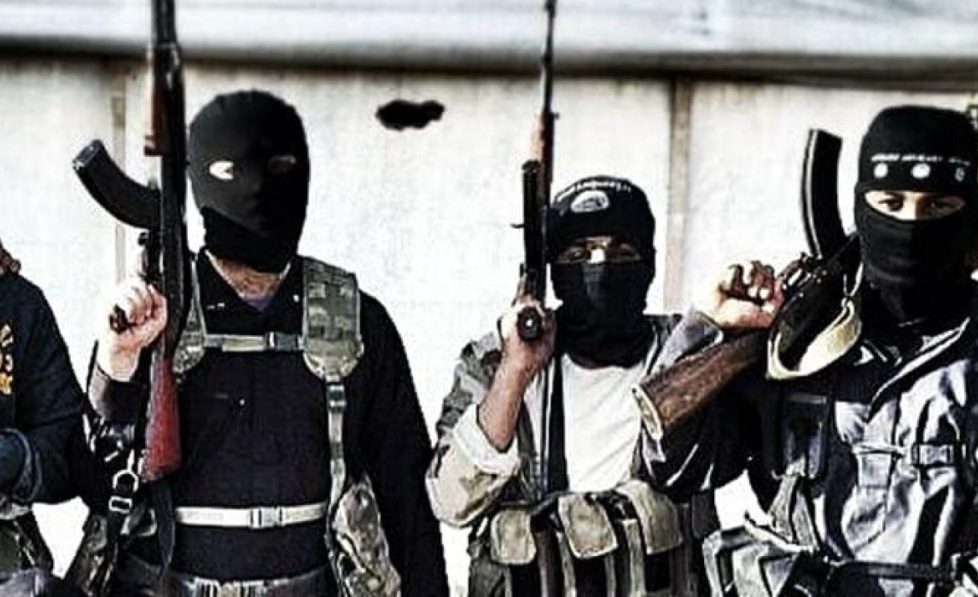FATF keeps Pakistan in grey list, cites ‘serious’ deficiency in checking terror financing


The Financial Action Task Force (FATF) on Thursday said that Pakistan will remain on its grey list as it failed to fulfil three key tasks set out in its anti-terror financing action plan.
Global terror watchdog Financial Action Task Force (FATF) on Thursday announced that Pakistan will continue to remain on its grey list due to failure to comply with all the points of a plan of action set by it to combat terror financing.
The FATF said that there had been serious deficiency on the part of Pakistan in checking terror financing and hence it will continue to remain on the “increased monitoring list”, another name for the “Grey List”.
The Paris-based FATF had placed Pakistan on the grey list in June 2018 and asked Islamabad to implement a plan of action to curb money laundering and terror financing by the end of 2019 but the deadline was extended later on due to the Covid-19 pandemic.
A virtual plenary meeting of the FATF, held over the past three days, concluded that Pakistan will continue on its grey list. FATF president Marcus Pleyer said, “Pakistan will remain under increased monitoring as serious deficiencies remain related to terror financing. While Pakistan has taken important steps, there are three important points from 27 action points remaining to be acted upon.”
Pleyer added that the deadline given to Pakistan has already expired and asked Islamabad to address their concerns “as quickly as possible”.
“There is a serious deficiency on the part of Pakistan in checking terror financing and the country is yet to demonstrate taking action against UN-designated terrorists and their associates,” he said.
The FATF said that Pakistan courts must give effective, decisive and proportionate punishment to those involved in terrorism, a statement which comes close on the heels of Pakistan Supreme Court’s acquittal of terrorist Omar Saeed Sheikh, the main accused in the 2002 murder of American journalist Daniel Pearl.
Among the UN-designated terrorists are India’s most wanted terrorists such as Jaish-e-Mohammed (JeM) chief Masood Azhar, Lashkar-e-Taiba (LeT) founder Hafiz Saeed and the outfit’s operational commander, Zakiur Rehman Lakhvi.
Azhar, Saeed and Lakhvi are most wanted terrorists in India for their involvement in numerous terrorist acts, including the 26/11 Mumbai terror attacks and the 2019 bombing of a CRPF bus in Jammu and Kashmir’s Pulwama.
The terror financing watchdog said that Pakistan must complete three unfulfilled tasks and once it is completed, the FATF will verify and take a decision on its present status in the next plenary to be held in June.
The decision was taken after a thorough review of Pakistan’s performance in fulfilling the global commitments and standards in the fight against money-laundering and terror-financing.
With Pakistan’s continuation in the ‘grey’ list, it is increasingly becoming difficult for Islamabad to get financial aid from the International Monetary Fund (IMF), World Bank, Asian Development Bank (ADB) and the European Union, thus further enhancing problems for the debt-ridden nation which is in a precarious financial situation.
The FATF also made an assessment of Pakistan cooperating and taking action to identify and initiating enforcement action against illegal money or value transfer services.
The assessment includes implementation of cross-border currency and bearer negotiable instruments controls at all ports of entry, including applying effective, proportionate and dissuasive sanctions.
On all these points, Pakistan’s progress was slow, sources said.
The country’s outstanding action areas also include effective implementation of targeted financial sanctions (supported by a comprehensive legal obligation) against all 1,267 and 1,373 designated terrorists and those acting for or on their behalf, including preventing the raising and moving of funds, identifying and freezing assets (movable and immovable), and prohibiting access to funds and financial services.
According to reports, some European countries, especially the host France, had recommended to the FATF to continue to keep Pakistan on the grey list and had taken the position that not all points had been fully implemented by Islamabad.
Other European countries are also reportedly supporting France.
France was not happy with the recent response of Islamabad to the protest against cartoons of the Prophet Muhammad.
Pakistan was placed on the “Grey List” by the FATF in June 2018 and was given a plan of action to be completed by October 2019. Since then the country continues to be on that list due to its failure to comply with the FATF mandates.
The FATF is an inter-governmental body established in 1989 to combat money-laundering, terror-financing and other related threats to the integrity of the international financial system.
It currently has 39 members, including two regional organisations — the European Commission and the Gulf Cooperation Council.
Story from: https://www.indiatoday.in/world/story/fatf-keeps-pakistan-in-grey-list-cites-serious-deficiency-in-checking-terror-financing-1773165-2021-02-25
Image: https://fauzinaukri.com/how-un-designated-terror-groups-generate-funds-in-fatf-grey-listed-pakistan-taiwan-media/
DISCLAIMER: The author is solely responsible for the views expressed in this article. The author carries the responsibility for citing and/or licensing of images utilized within the text.
